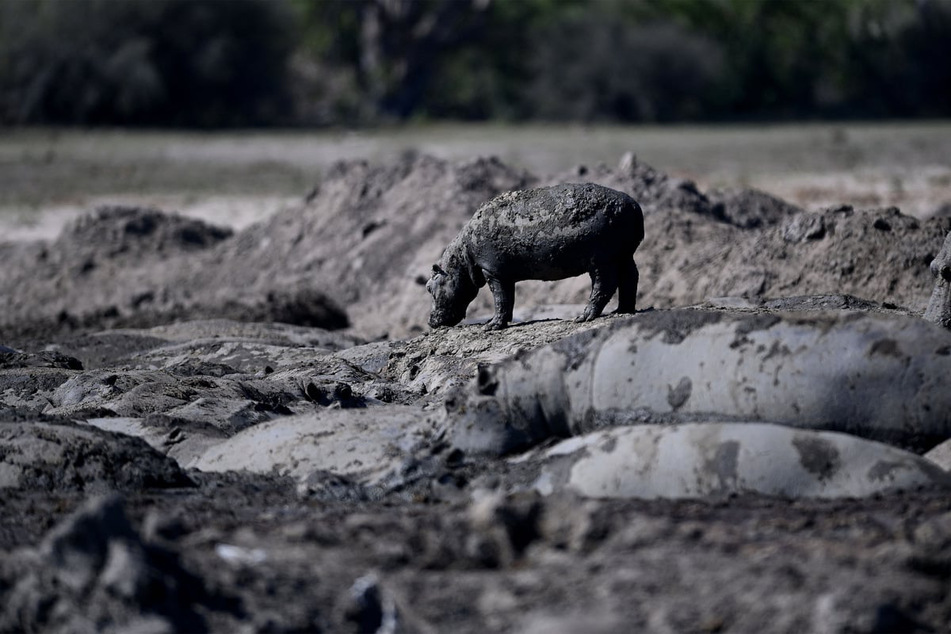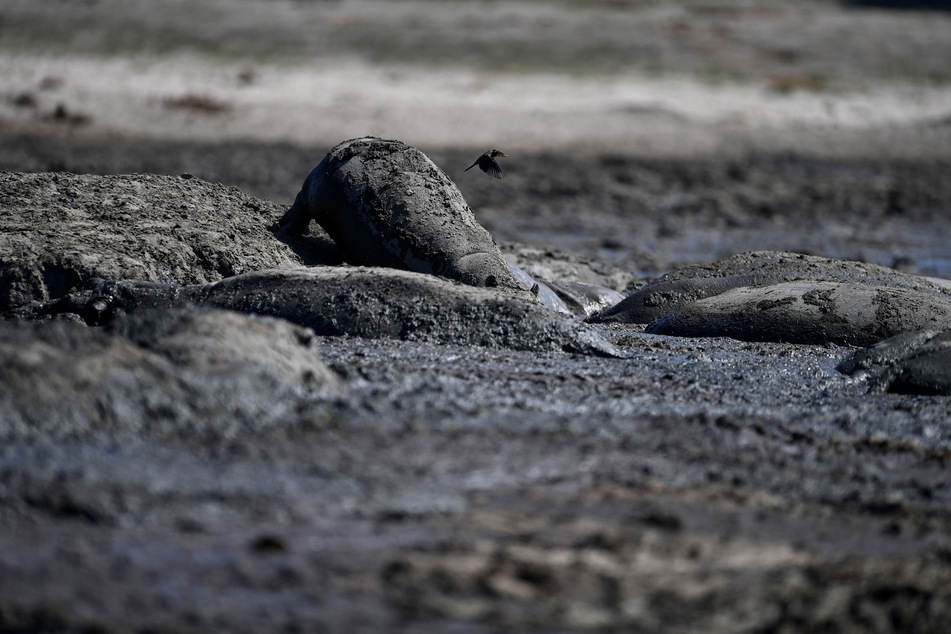Hundreds of endangered hippos stuck in dried-up ponds amid deadly drought in Botswana
Botswana - Hundreds of endangered hippos in Botswana have ended up crammed into shallow pools of muddy water dried up from the country's deepening drought.

Botswana has been deep into a climate change-induced drought that is having a disproportionate impact on local, and iconic, wildlife.
Specifically, wild animals including lions, buffaloes, baboons, elephants, and hippos have been the hardest hit by drought conditions that seem to be worsening as the wet seasons comes to an end with barely any rainfall.
Permanent secretary for Botswana's Ministry of Environment and Tourism Grace Muzila, said that 2023 reports were particularly dire from the country's national parks, where "Wild animals get stuck in the mud desperately looking for water, and they die."
The Climate Hazards Center reported in March that while precipitation was supposed to be the highest in the three-month period from December to February, the latter month was the driest ever recorded in not only Botswana, but Angola, Zambia, and Zimbabwe as well.
This is largely attributed to the ongoing El Niño conditions, but also worsening heatwaves and drought as a result of human-induced climate change.
The coming months are not looking much better either, as the UN Office for Coordination of Humanitarian Affairs expects that dry conditions and low rainfall will continue across the African continent until at least June.
Now, striking images have come out bringing the reality of the situation to light, showing hundreds of hippos crammed into a tiny, muddy pond in Botswana.
Endangered Botswana hippos in deadly situation as drought worsens

As a result of the devastating drought, expansive wetlands in northern Botswana, along the Thamalakane River, are drying up at a rapid rate, creating an environment that could see hundreds of animals die.
Of particular note are the endangered hippo populace, of which the region is home to the world's biggest population, estimated to be between 2,000 and 4,000 by the International Union for Conservation of Nature (IUCN).
The animals have been sighted migrating down to natural water reserves near the tourist town of Maun, with crowds of the endangered animals trapped in dried-up lakes and ponds, covered in mud.
"The river system dries up and animals are in a compromised situation," Lesego Moseki, a spokesperson for Botswana's Department of Wildlife and National Parks, told AFP.
There is also a concern that the animals, which are becoming increasingly aggressive as the water dries up and they are forced closer to human civilization, will become more of a threat to local communities.
Cover photo: Monirul Bhuiyan/AFP